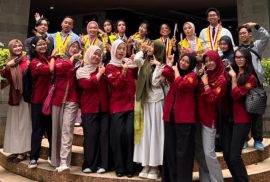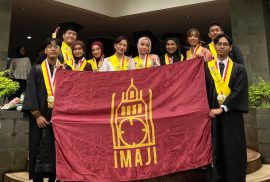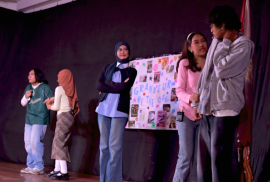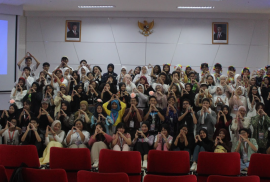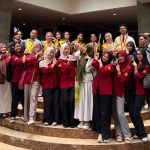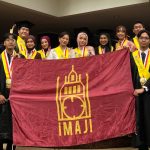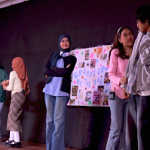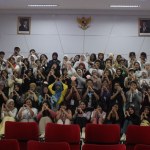My name is Farah Nadira Lukita Dewi, a first batch IISMA Awardee to the University of Padua, Italy, for the fall semester of 2021. I was in my second year of undergraduate studies in the English Department when I joined the program. Through this writing, I will be sharing about my life-changing experiences during IISMA, both the social and academic life.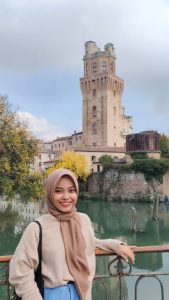
For the first few days of my arrival, I still could not believe my eyes that I had finally made my way there. Going abroad for an exchange program has always been the biggest dream of mine and all struggles in the pre-departure preparation were paid off. Italy, specifically the University of Padua, however, was not my first destination. My first choice fell to Newcastle University, London. After learning that they did not accept TOEFL ITP, the only English proficiency certificate that I had, there was not much time left to take another type of test, so I decided to change my choice on the host university. After many considerations including the local language and offered courses, I was convinced that University of Padua was the best option for me. I did not regret it one bit.
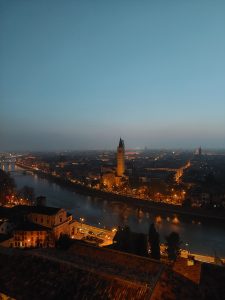
I, along with the other 29 awardees, lived in the same dorm building. It was only around two kilometers away from the city center. Since everything was relatively close, I usually commuted by bus or simply on foot. Italy, to my surprise, had more things in common with Indonesia than I had expected, which is a good thing because it truly made it feel like home. The locals were very friendly and helpful even when I did not speak and understand Italian whatsoever at first. I’d have random locals start sharing their trip experiences in Indonesia with me as soon as they learned I’m an Indonesian.
Being a Muslim was not as scary as I thought it would be either. If anything, I can say that most people respect it, though Islam belongs to the minority group and thus there were barely any mosques in my city. Some local women even came up to me to compliment my hijab and how I looked good in it. Also when eating in a restaurant, they would warn me if the food contained pork. However, I can admit that my options for halal food were very slim, which forced me to cook more. One thing that caught my attention was the lack of time discipline. Surprisingly, just like Indonesian culture, it was much more common for people not to be punctual. There were many times when my professors would start the class five to ten minutes late and the buses did not operate as scheduled.
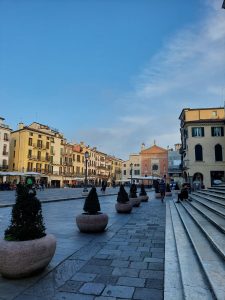
My academic life was not any less interesting. Because of the pandemic, the classes had to be conducted partially online and physically. However, attendance was not mandatory for most courses. Students would still be given the opportunity to take final exams even if they chose to be non-attending students but with different workloads. The teaching methods seemed to vary from one course to another. There was one course in which the professor barely gave lectures and thus only demanded the students to be actively engaged in class forums and discussions. Meanwhile, in a different course, the professors were the ones leading the class with lectures. Also, some courses barely gave any assignments and even midterms. Hence, final exams contributed 100% to our final marks.
Most humanities fields held the final exams orally, which I struggled with at first since I was more used to paper-based exams. I even failed one of the courses once. Thankfully, I was able to retake the exam the following month and passed it with a satisfying result. They also allowed us to reject our marks and gave us chances to retake the exams more than once should we were not satisfied with the results. The grading system was also different from that in Universitas Gadjah Mada. The marking system was on a scale of 18 to 30, with 18 being the minimum passing score and 30 being the maximum. It was definitely not an easy job to get a good mark. My local friend informed me that it was common for her peers and herself to retake the exams at least three times before getting a score above 26. But, since I was in a short exchange program, it was impossible for me to retake the exams more than once. Therefore, I was highly motivated to make up for the failing exam by trying my best in the next period.
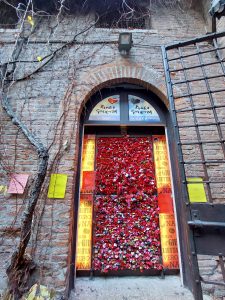
The international office staff member was also accommodating us from the pre-departure up to the return, including informing us on how to fill out the study plan, apply for the residence permit, and other useful academic-related life. I had to change some of the selected courses because of the overlapping timetables. It took me a while to commute from one class to another because unlike Universitas Gadjah Mada, the faculties of the University of Padua were not centralized in one area. Some of them are even located in a different city that is like an hour away by bus from the city center.
IISMA gave me the opportunity to meet people from various backgrounds and learn about new cultures not only through social events that I participated in but also by traveling to other EU countries since I was the holder of a European visa. I met and interacted with other Indonesians who resided in those countries. They got to share their experiences living abroad as Indonesians, which also motivated me to do the same in the future.

My ups and downs during IISMA have had a strong impact on my life. Though it was a relatively short period of time, I never went a single day without learning something new. Most importantly, it taught me to be independent and solve problems on my own. The gap between the Eastern cultures in which I grew up and the Western cultures to which I was exposed to has given me a new perspective to see the world. It is important to have pride in our identity while also maintaining respect for others. I hope that everything I learned from my five-month stay in Italy will be a valuable tool that will assist me in my future academic journey.

